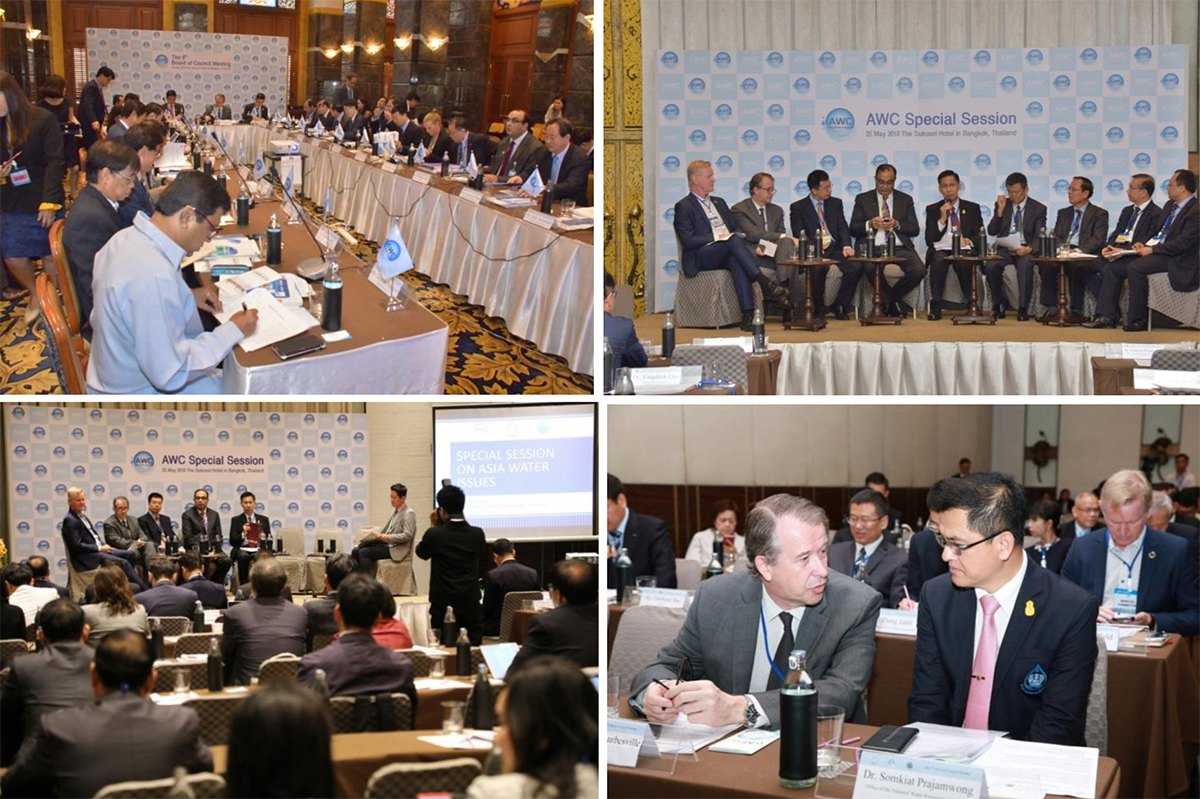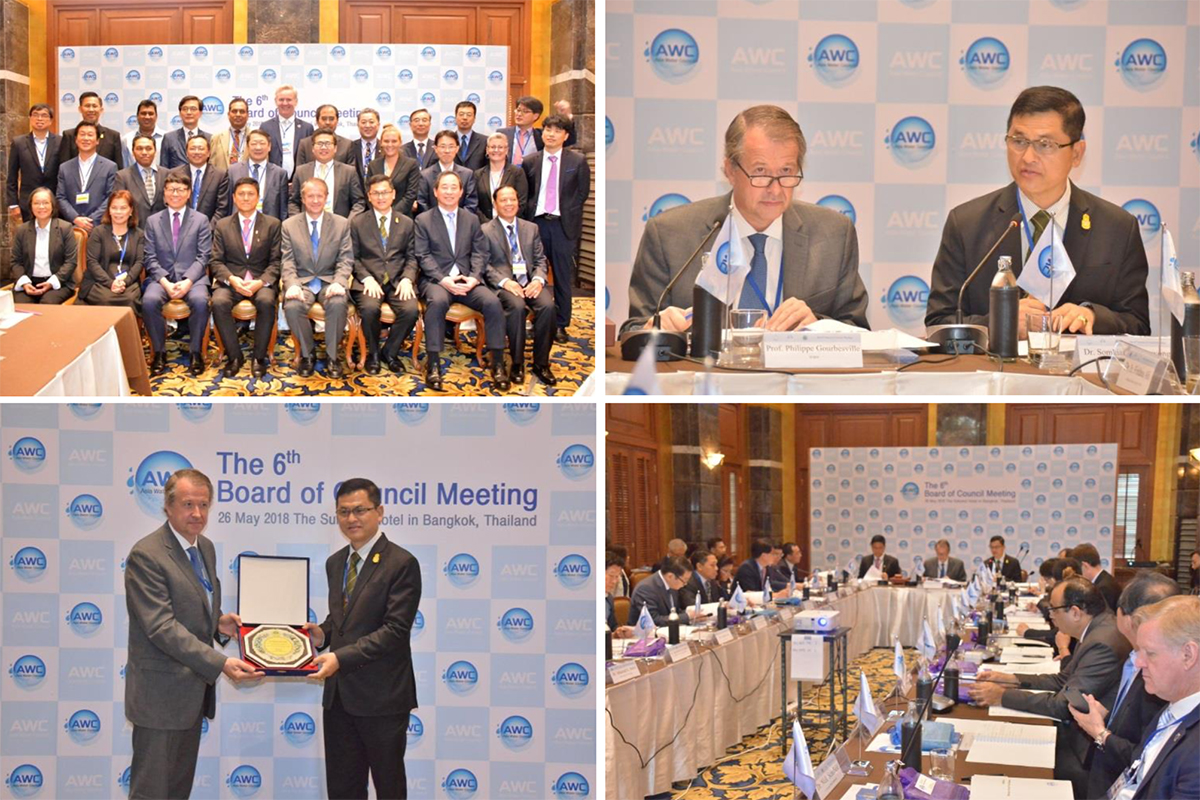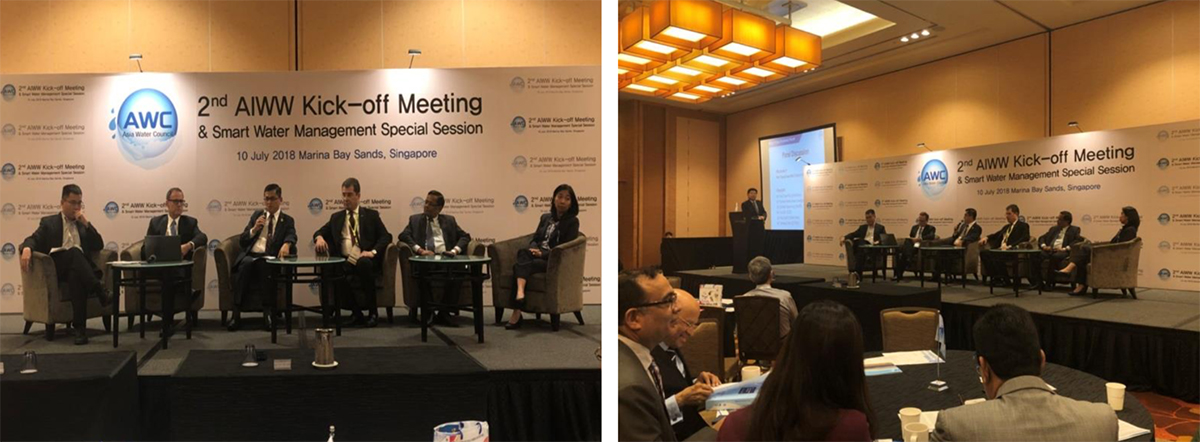What is the Asia Water Council?
Asia Water Council (AWC) is an Asia’s regional water organization networking with World Water Council. AWC is the organization that aims to express water issues and concrete solutions to water problems and push forward Asia’s water agenda into the global water agenda. It is the main organization holding Asia International Water Week which is the biggest academic forum in Asia and is the platform that encourages policy-makers in water sector to gather and make collaboration on water resources management towards sustainable development under global climate change context as well as implements plans to achieve UN’s sustainable development goals. Administrative structure of AWC consists of Board of Council, Advisory Board, Special Committee and Secretariat Office. Nowadays, there are 130 members from Asia and other regions worldwide.

Roles of the Office of National Water Resources in the Asia Water Council (AWC)
The Executives of ONWR holding executive position in the Asia Water Council as follows:
- The Secretary-General of the Office of the National Water Resources (Mr. Somkiat Prajamwong) takes a position of Executive Vice President of AWC since 2016-2018. He presently has been appointed as an honorary member who has the roles and duties in giving advice to the board of council members in terms of the organizational strengthening with his commitment to promote AWC to become an Asia regional center in water resources management, push forward and provide an opportunity for policy makers in water sector to meet and discuss for integrated cooperation with all stakeholders.
- ONWR by the Secretary-General of the Office of the National Water Resources (Mr. Somkiat Prajamwong) is elected to be the Governing Board for the 2nd Asia International Water Week in Indonesia. The Governing Board has the authority and role to organize and run the meeting with its goal of becoming a platform which enables experts, stakeholders, and all concerned parties from across Asia to gather and exchange water related problems, challenges and solutions to achieve the sustainable developmental goals.

Collaborative Activities with the Asia Water Council (AWC)
- The Office of the National Water Resources in collaboration with the Asia Water Council (AWC) and Royal Irrigation Department (RID) held The 6th Board of Council Meeting in parallel with the Special Session on Asia Water Issues during 25th-26th May, 2018 at The Sukosol Bangkok Hotel.
- Join the activities of the official announcement in the 2nd Asia International Water Week Kick-Off Meeting and take part in the forum on the topic “Water Business Forum” during the Singapore International Water Week 2018 during July 9th-10th, 2018 in the Republic of Singapore.

Benefits that Thailand would gain from the coordination with the Asia Water Council (AWC)
Since AWC is the organization that is the main coordinator of the water operations between Asia region and other regions worldwide, and World Water Council is the mentor, the AWC member countries or organizations can use AWC’s network and utilize beneficial information from AWC in the following aspects:
1. AWC is operating 5 water projects in Indonesia, Cambodia, and Vietnam so as to substantially be the methods of resolution of water problems. Moreover, the member countries in the network, water specialists and the authoritarians from the governments of each country in Asia region have the opportunities to suggest the coordinating guidelines and propose the beneficial projects for the region to receive the support from AWC.
2. There are the exchanges of information, key content about water and innovation that other countries use both in software and hardware forms in order to follow-up water situations in any crisis periods.
3. There are the expansions of the water networking parties including public sector organizations and international organizations both for drought and flood and increasing of exchanging-learning channels both academic and managing.
4. There are public relations for regional community and global community in order to correctly aware of the governmental policies toward the solutions of the water problems, leading to the understanding of the water management methods of Thailand in the past and present.


